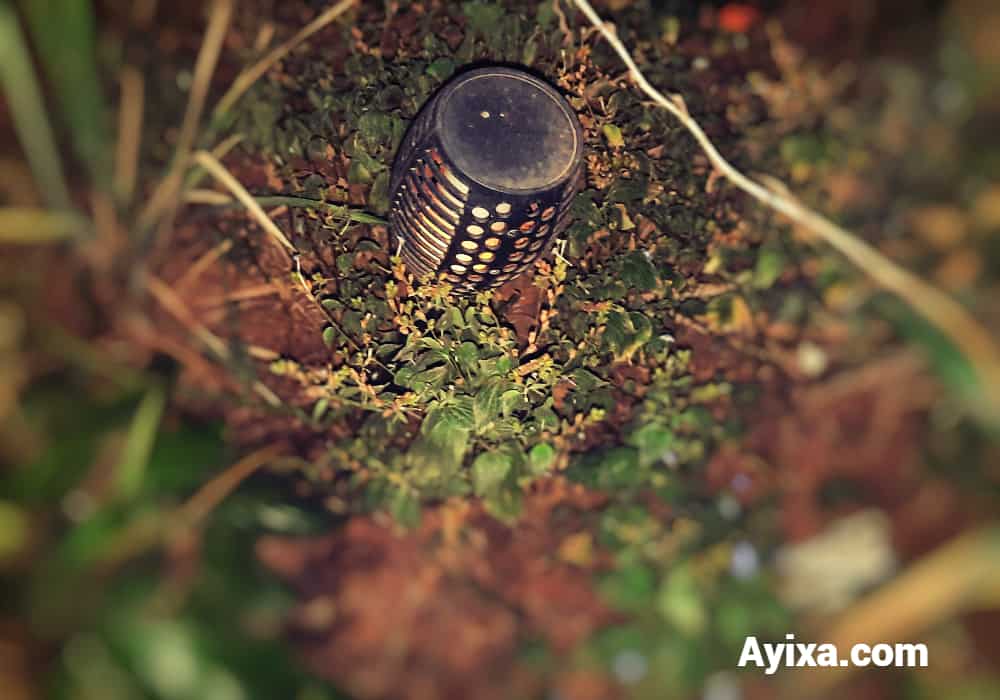Solar garden lights can add color to your landscape quickly, particularly if you have a large yard that you need to be lit quickly and want to avoid running electric wires.
When it rains, the exterior of the solar garden light gets wet – and understandably you may have concerns about the lifespan of the solar garden lights when this happens.
So, in this guide, I look at whether solar garden lights can and should get wet, whether they work in the rain, what protection you can provide to them, and likely causes of failure should they stop working when it rains.
Can Solar Garden Lights Get Wet? (and if it is a Problem)
Good quality outdoor solar garden lights can get wet, are able to withstand rain, and continue working without any problems.
If you see raindrops or water splashes on them occasionally, for a good quality light this should not affect their performance and lifespan.
They usually have an IP rating of 65 rating protection which confirms protection against light rains and small jets of water. Always check the IP rating of the solar garden lights before buying and installing outdoors.
You may also be interested in the post: What type of batteries solar garden lights use
Can You Leave Solar Garden Lights out in the Rain?
Yes, you can keep the good quality solar garden lights outdoors when it is raining provided they have IP65 and are properly installed. Beware of heavy splashes, running, or large pools of water.
Many solar garden lights are not designed for this and can fail when the water damages the internal circuitry.
Can Solar Garden Lights Work in the Rain?
Yes, good quality solar garden lights can continue lighting during the rain provided they are designed to withstand the rain, are sufficiently charged, and are installed according to the manufacturer’s recommendations.
The solar garden lights may only charge partially during rainy and cloudy weather which limits how many hours of lighting they may be able to provide during the night.
Provided they are receiving the recommended hours of sunshine typically 6 – 8 hours, they should be able to provide about 8 – 12 hours of light during the night even during the rain.
How to Protect Solar Garden Lights from the Rain?
To protect solar garden lights from the rain, make sure that you install them properly – it varies from the manufacturer but essentially it is important that it is set up at the right height using stakes of a height that the manufacturer recommends.
Secondly, make sure they are installed properly so that there is no water entering them.
If the lights show any sign of crack – remove them, fix the crack to keep out rainwater that can damage the internal circuitry.
Related questions
Why Your Solar Garden Lights Might Not Work After the Rain?
There are two common reasons why solar garden lights might stop working after it has been raining assuming the lights have been working previously and the batteries are in good condition.
The batteries may be low on charge because there has not been enough sunshine for them to charge sufficiently.
The internal circuits may be damaged from the rainwater damaging may have suffered damage from rainwater damaging them.
What to Do if they Stop Working after the Rain?
This depends on the reason why they stopped working. If it is because they did not charge sufficiently then you need not do anything – all they need is several hours of sunshine and they should work again.
If you suspect water damage to the electronics, if you detect it early, you may be able to save the light by immediately removing the battery, draining out all the water, ensuring it is dry before you put it out in the sun.
If detected several hours, days later, it may be too late to save them from the shorts and rust buildup. You should get a new solar light.
You may also be interested in the post: How to fix solar lights that have stopped working
Final Thoughts
Good quality solar lights can get wet without their performance or lifespan affected provided they are properly installed.
If they stop working after it has rained, it is usually because they may not have sufficiently charged or some of the water seeped into the lights and affected the internal electronics.

